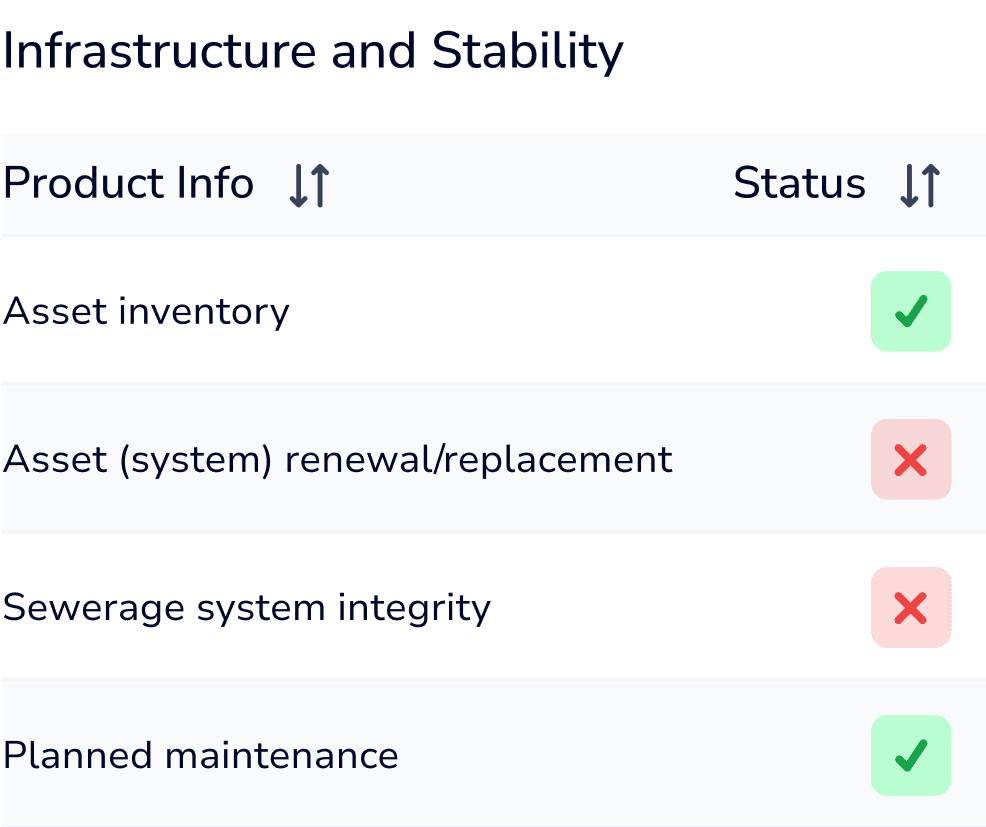Showcasing Tools for Transformative Decision Making
The WSH Data Tools Mapping initiative provides a comprehensive overview of tools designed to enhance decision-making and operational performance in the sanitation sector. By cataloging and showcasing tools across eight countries, WSH Data Labs empowers stakeholders to identify solutions that meet their unique needs.
This initiative includes interactive dashboards, case studies, and webinars that spotlight innovative tools used by utilities and municipalities.


Key Activities
- Compiled a detailed catalog of WSH data tools, accessible through an interactive dashboard.
- Hosted webinars featuring tool demonstrations and success stories from the field.
- Facilitated discussions to encourage the adoption and scaling of effective tools.

Outputs
Discover
Water & Sanitation Tools
Explore regulatory and utility / municipality data system tools and learn how they can improve your work.

Export Visualization
Export your visualization for further review and reporting.

Compare Tools
Easily compare various tools to identify the best options for your needs.

What Can You Map?
Based on four critical success factors, visualize various utilities and municipalities tools across sub-Saharan Africa and Southeast Asia. Each critical success factor indicates the expected outcomes that a utility needs to achieve for the smooth running and sustainability of sanitation service operations.
Key Activities
- Enabled stakeholders to make informed decisions about tool adoption.
- Promoted collaboration between developers and end-users to optimize tool performance.


